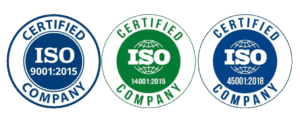Summary:
Australia is making significant progress toward circular economy goals in packaging, with new regulatory initiatives and industry programs set to reshape how materials are designed, used, and recycled by 2025. These changes will affect manufacturers, retailers, and logistics providers, creating both challenges and opportunities. Carewell offers sustainable packaging solutions to help businesses stay compliant and eco-conscious.
What’s New
The Australian Packaging Covenant Organisation (APCO) has introduced updated guidance to accelerate the nation’s transition to a circular economy. These updates focus on reducing environmental impact and improving recycling efficiency across the packaging sector. Key highlights include:
- 100% reusable, recyclable, or compostable packaging for all packaging types by 2025, a target that applies to both domestic and imported products.
- 70% of plastic packaging recovered or recycled, aiming to drastically reduce landfill contributions and environmental pollution.
- Mandatory sustainability reporting for manufacturers, importers, and brand owners, ensuring transparency and accountability in meeting circular economy targets.
- Collaboration incentives encouraging businesses to develop innovative packaging materials, including plant-based plastics, biodegradable films, and compostable cartons.
In addition to these requirements, APCO is working with local governments and recycling operators to improve the collection and processing of recyclable materials, ensuring the infrastructure can support these ambitious targets.
Why It Matters
These updates have far-reaching implications for businesses across the supply chain:
- Compliance obligations: Companies must audit current packaging processes, adjust materials, and submit detailed reports on progress. Failing to meet targets could result in fines or reputational damage.
- Supply chain optimization: Transitioning to recyclable or compostable packaging may require changes in sourcing, manufacturing, and logistics operations to maintain efficiency while meeting environmental requirements.
- Consumer and investor expectations: Australians are increasingly choosing brands that demonstrate environmental responsibility. Businesses adopting circular packaging practices can strengthen customer loyalty and attract sustainability-focused investors.
- Cost and innovation opportunities: While transitioning may involve upfront investment, businesses can reduce long-term costs through waste minimization, improved material efficiency, and new market opportunities for sustainable products.
The circular economy approach also encourages companies to consider end-of-life scenarios for packaging, promoting a system where materials are continuously reused, recycled, or composted rather than discarded.
Carewell’s Insight
Carewell is at the forefront of helping businesses navigate this transition. Our range of eco-friendly packaging solutions ensures compliance with circular economy goals while maintaining functionality and operational efficiency.
Key solutions include:
- Biodegradable stretch films for secure pallet wrapping with reduced environmental impact.
- Recyclable cartons and paperboard packaging that meet sustainability standards without compromising durability.
- Eco-friendly tape solutions designed to replace traditional plastic adhesives with recyclable or biodegradable alternatives.
- Consultation and guidance services to help businesses audit their current packaging, select sustainable alternatives, and implement circular economy practices.
By integrating Carewell’s sustainable packaging solutions, businesses can not only comply with the 2025 targets but also position themselves as industry leaders in environmental responsibility.
Explore our full range of eco-friendly packaging solutions to see how Carewell supports businesses in achieving sustainability goals while enhancing operational efficiency.
Looking Ahead
As Australia approaches 2025, the packaging industry is expected to continue evolving rapidly. Innovations in materials science, recycling infrastructure, and corporate sustainability strategies will play a critical role in meeting national circular economy targets. Businesses that proactively adopt eco-friendly packaging practices will gain competitive advantages, from reduced waste management costs to stronger brand loyalty.
The government and industry bodies are likely to introduce additional support programs, incentives, and stricter reporting frameworks to ensure these targets are met, emphasizing the importance of early adoption and strategic planning.
For companies across Australia, now is the time to evaluate packaging practices, invest in sustainable solutions, and collaborate with partners like Carewell to stay ahead in a rapidly transforming market.
External Reference Links:









